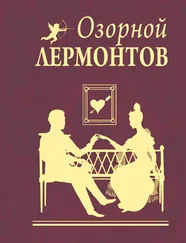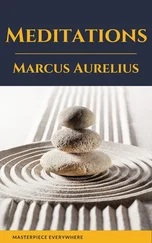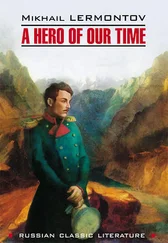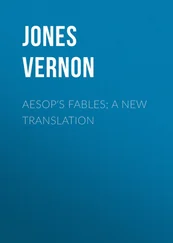God bless writers. How can I not admire a bunch of brave, drunk sociopaths who keep doing the same thing that I love to do? Lermontov showed us the path. All we have to do is keep getting back up on the horse. Sounds perfectly reasonable to me.
Of course, I was still flunking a math class at the age of twenty-six, so beware.
NEIL LABUTE
Grigory Alexandrovich Pechorin is a hero without a cause—to pervert a latter-day aphorism. He is a cynical young man who fights duels, seduces maidens, hunts wild boar, and stirs up trouble. He will tell you this himself: “I run through the memory of my past in its entirety and can’t help asking myself: why have I lived? For what purpose was I born?… There probably was one once, and I probably did have a lofty calling, because I feel a boundless strength in my soul… But I didn’t divine this calling. I was carried away with the bait of passions, empty and unrewarding. I came out of their crucible as hard and cold as iron, but I had lost forever the ardor for noble aspirations, the best flower of life…”
His questions are as relevant today as ever, but Pechorin’s story takes place in the 1830s. Nicholas the First was on the throne, despised by the Russian intelligentsia for his repression of discourse. He had crushed the Decembrist revolt, which had attempted to prevent his ascendancy to the throne. In his book on Russian literature, Maurice Baring describes Nicholas the First’s rule as “a regime of patriarchal supervision, government interference, rigorous censorship, and iron discipline.” The decade was a time of constraints, when young men like Pechorin felt stifled and ineffectual.
Lermontov’s hero is serving in the army, based in the Caucasus, where Russian forces are attempting to subdue its mountain tribes. This mountainous region to the south of Russia today encompasses lands such as Chechnya, Georgia, Armenia, North Ossetia, South Ossetia, and Dagestan. National boundaries have changed over time, but one cannot underestimate the metaphysical place that the Caucasian landscape fills in the Russian consciousness: it is the landscape “where in the mountains martial robbery occurs and the savage genius of inspiration is hiding in the mute silence” (Pushkin, The Prisoner of the Caucasus ). Lermontov is often called the “poet of the Caucasus” and it is no surprise, given his descriptions of the terrain: “What a glorious place…! On every side there are unassailable mountains, and reddish promontories, hung with green ivy and crowned with clumps of plane trees; there are yellow precipices, covered with the lines of gullies; and right up high: a gold fringe of snow.”
Picture these mountains where dzhigits, skilled horsemen, twirl their steeds on jagged promontories; where abreks, Caucasian freedom fighters, roam the hills in hordes, adhering to nothing but their own moral code; where the chimneys of saklyas, mountain huts, send up smoke, visible to travelers from across vast valleys. The Caucasus was home to some of the fiercest Cossacks, who fought with the Russians in their efforts to conquer the mountain regions. They were also assisted by so-called peaceable princes (tribal leaders who cooperated with Russian forces). If a soldier was fortunate, he might become a kunak of such a peaceable prince—a sworn friend, an adopted brother, on whom great generosity was bestowed. Both the ethnic groups and the languages of the Caucasus are many and varied. These mountains are home to Georgians, Lezghians, Ossetians, Circassians, and Chechens, among others. According to an anecdote told by Edmund Spencer in his Travels in Circassia, Krim Tartary, Etcetera of 1837, when a Turkish sultan sent a learned man to discover the languages of the Caucasus, he returned with just a bag of pebbles. When the sultan asked the man to present his findings, the man shook the bag of pebbles—it was the best imitation he could conjure, having failed in the hopeless task of learning anything of them. The literary critic Vissarion Belinsky remarked in 1841: “It is a strange business! It is as if the Caucasus is destined to be the cradle of our poetic talents, to be the inspirer and bear-cub of their muse, the poetic motherland!” [1] Belinsky, V. G. Notes of the Fatherland (St. Peterburg: 1841), vol. XIV, pp. 45-46.
While its setting may be very exotic and remote, the historical position of A Hero of Our Time places it right in the thick of things literary. It is a pivotal book that sits on the cusp between Romanticism and Realism, at a moment when Russian literature was forging its path from poetry to the novel. Until 1840, Russian writers had merely flirted with the novel. As the Russian literary critic Boris Eikhenbaum wrote, “Lermontov died early, but this fact bears no relation to the historical work which he accomplished, and changes nothing in the resolution of the literary-historical problem which interests us. It was necessary to sum up the classical period of Russian poetry and to prepare the transition to the creation of a new prose. History demanded it—and it was accomplished by Lermontov.” [2] Eikhenbaum, B. M. Lermontov: A Study in Literary-Historical Evaluation (Ann Arbor: Ardis, 1981), p. 171.
Pushkin had just died after producing short stories and his famous novel-in-verse, Eugene Onegin, and Dostoevsky, Turgenev, and Tolstoy had yet to emerge. Gogol was writing prose but had produced only short stories until this point. With his book, the young Lermontov, only twenty-six when he wrote A Hero of Our Time, called the Russian novel into being.
As a writer, Lermontov is said to have been influenced by the works of Byron, Chateaubriand, Constant, and, of course, Pushkin. The novel with which A Hero of Our Time is often compared is Alfred de Musset’s La Confession d’un Enfant du Siècle for their similar titles and descriptions of moral malaise. In turn, Chekhov, Dostoevsky, and Tolstoy were each influenced by Lermontov—his metaphysics, his ironic stances, and his descriptions of the Caucasus. But, as scholar John Garrard explains in his essay “Old Wine in New Bottles: The Legacy of Lermontov,” A Hero of Our Time occupies a special place in the development of Russian literature:
[F]ar too much time is spent tracking down possible domestic and foreign sources for his works and far too little time is given over to an exploration of what Eikhenbaum called many years ago Lermontov’s “art of fusion” ( iskusstvo splava ), his ability to combine a variety of available elements into a new and original form…. It is arguably true that Lermontov had a more lasting impact on the shape and contours of the Russian novel than either Pushkin or Gogol. A Hero of Our Time possesses three of the most central characteristics of the Russian novel: 1) psychological analysis; 2) concern with ideas; 3) sociopolitical and ethical awareness. None of these features is the exclusive property of the novel in Russia, but the intensity with which they are engaged does help define the Russian novel and differentiate it from the novel elsewhere. [3] Garrard, John. “Old Wine in New Bottles: The Legacy of Lermontov” in Poetica Slavica: Studies in Honour of Zbigniew Folejewski, edited by J. Douglas Clayton and Gunter Schaarschmidt (Ottawa: University of Ottawa Press, 1981), pp. 41-52.
As a piece of social commentary, A Hero of Our Time created quite a stir when it emerged, immediately garnering both praise and criticism. It came out at a time when the debate between Slavophiles and Westerners about Russian cultural identity was coming to a crescendo. Slavophile critics such as S. P. Shevyrev and Apollon Grigoriev complained that Pechorin represented the vices of the West, not of Russia. Belinsky, on the other hand, defended the work’s validity as a portrait of a Russian type by placing it as descendant from Pushkin’s Eugene Onegin.
Читать дальше
Конец ознакомительного отрывка
Купить книгу
![Михаил Лермонтов A Hero of Our Time [New Translation] обложка книги](/books/27671/mihail-lermontov-a-hero-of-our-time-new-translati-cover.webp)










